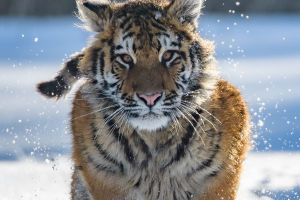
Sheep Immunity

Sheep receive vaccinations at different growth stages to prevent life-threatening viral invasions. This routine immunization is crucial and should be scheduled when lambs are ready for vaccination.
However, certain factors may still lead to sheep getting infected despite vaccination. Let's explore these factors.
Genetic Inheritance:
If the natural immunity of the ewe and ram is not robust, the lamb's immunity might not significantly improve with medication. The lamb's immune response is primarily influenced by genetics.
Consequently, many sheep farms consistently introduce high-quality breeding sheep each year. This not only enhances breeding capacity and increases flock size but also optimizes lamb genes, elevating the overall growth and development of the flock.
Related
 Uncover deep-sea mysteries with captivating manta rays, urging protection for these unique creatures and marine balance.
Uncover deep-sea mysteries with captivating manta rays, urging protection for these unique creatures and marine balance.
 Spinner Dolphins: Ocean Ballet of Strategic Collaboration.
Spinner Dolphins: Ocean Ballet of Strategic Collaboration.
 The Cat's Tail: A Mood-Expressing Marvel for Feline Communication and Understanding.
The Cat's Tail: A Mood-Expressing Marvel for Feline Communication and Understanding.
 Discovery of dwarf giraffes challenges norms, unlocking new insights into giraffe morphology.
Discovery of dwarf giraffes challenges norms, unlocking new insights into giraffe morphology.
 A comprehensive guide to the tiger.
A comprehensive guide to the tiger.
 The animals have moved together.
The animals have moved together.

Environmental Influences:
The sheep house's location demands stringent environmental standards. Abnormal local climates, whether too cold or too hot, can stress the flock and reduce sheep's immunity, making them susceptible to viruses even with vaccination.
Maintaining optimal temperature and ventilation in the sheep farm reduces the risk of virus invasion. Regularly cleaning the sheep house environment is crucial, ensuring that sheep safely pass through the critical period post-vaccination.
In a poor environment, dampness and germs can quickly accumulate, becoming a breeding ground for viruses. Even if sheep have good daily antibody levels, the likelihood of virus infection remains high. Therefore, a well-maintained and hygienic sheep farm environment prevents infections.
Nutrition:
The daily feed and water intake of sheep are rich in essential nutrients that contribute to the overall development of their immune systems. Properly arranged feed, varying in quantity according to different growth stages, is crucial.
A diversified diet is necessary, as deficiencies in vitamins and amino acids can hinder the growth of sheep cells, leading to decreased immunity. A well-nourished sheep is better equipped to resist viral invasions.
Various Pathogens:
Sheep often show minimal sensitivity to diseases, making treating even minor viral infections challenging. Other pathogens in the body complicate matters, rendering the sheep's immune system ineffective.
Some vaccines claim to resist multiple pathogens, but they may interfere with the sheep's immune function, causing a decline. Thus, a balanced approach is crucial, and it is generally recommended to develop vaccines on a one-to-one basis to avoid compromising the sheep's immune response.
In conclusion, factors influencing sheep immunity are interconnected with their growth. Enhancing immunity requires diligent daily sheep management, emphasizing the importance of routine tasks for sheep farmers.
By addressing genetic, environmental, nutritional, and pathogenic factors, sheep farmers can significantly improve their flock's overall health and immunity.